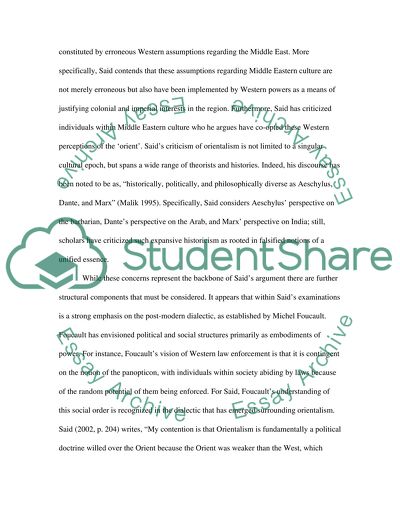Cite this document
(“The Concept of Orientalism Essay Example | Topics and Well Written Essays - 2000 words”, n.d.)
Retrieved from https://studentshare.org/sociology/1447731-the-concept-of-orientalism-has-many-critics
Retrieved from https://studentshare.org/sociology/1447731-the-concept-of-orientalism-has-many-critics
(The Concept of Orientalism Essay Example | Topics and Well Written Essays - 2000 Words)
https://studentshare.org/sociology/1447731-the-concept-of-orientalism-has-many-critics.
https://studentshare.org/sociology/1447731-the-concept-of-orientalism-has-many-critics.
“The Concept of Orientalism Essay Example | Topics and Well Written Essays - 2000 Words”, n.d. https://studentshare.org/sociology/1447731-the-concept-of-orientalism-has-many-critics.


